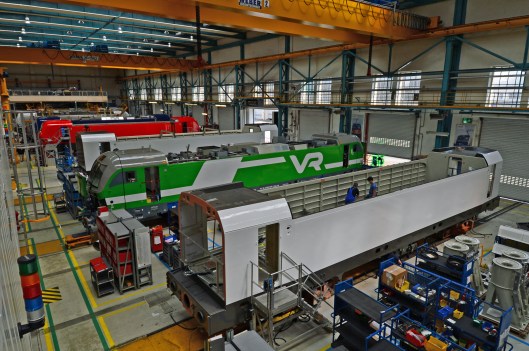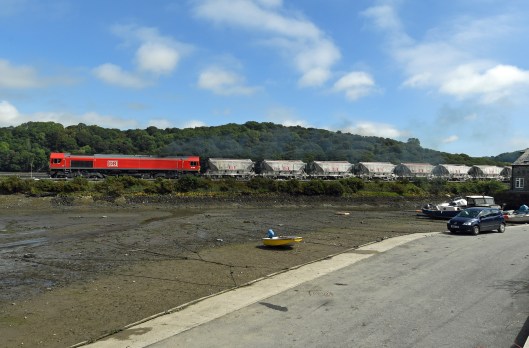Today Transport Minister Jo Johnson MP made a policy announcement on the future of the UKs diesel train fleets – sort of, ish…
Because the policy is more of an aspiration, not a firm commitment. Johnson told the BBC that “I would like to see us take all diesel-only trains off the track by 2040. If that seems like an ambitious goal, it should be and I make no apology for that. After all we’re committed to ending the sales of petrol and diesel cars by 2040. If we can achieve that, then why can’t the railway aspire to a similar objective?” Once doesn’t have to be a Professor of English to spot the caveats in that.
The inherent irony here is that his Government has recently scaled back electrification of routes like the Midland Mail Line (MML) and has ordered many more diesel-electric bi-mode trains like the Hitachi Class 802s for GWR. Bi-modes are the worst of all worlds as they’re hardly energy efficient, OK, they may run on electric power for most of the trip, but then they’re carting around a lot of dead-weight in diesel engines and fuel.
This also begs questions about the 55 new CAF built Civity DMUs which are on order for Northern. Can these be converted to EMUs and (even if they can be) what does this do for the economics of the Northern franchise? Elsewhere, Porterbrook leasing are converting all-electric Class 319 trains to bi-mode by fitting them with diesel engines. The rolling stock leasing companies must be scratching their heads right now. They’ve got 1000s of older EMU vehicles coming off-lease in the next few years but without an extension of electrification, there’s nowhere to run them! Instead, we’re going to the halfway-house of bi-mode.

GWR are currently taking delivery of these Hitachi Class 800 bi-modes to replace their HST fleet. Does the Government seriously expect the MTU diesel engines to be redundant in 22 yrs time, and if so – how?
Whilst the announcement (or should that be ‘thinking aloud’) will be welcome news for companies like Alstom who have developed a Hydrogen powered train, it leaves more questions than it answers.
There’s one very noticeable omission in the ‘plan’: Freight.
The majority of the UKs railfreight is moved by powerful ‘go anywhere’ diesel locomotives. How will they be replaced by 2040 without electrifying the main freight routes? As many depots and sidings aren’t electrified train builders have fitted ‘last mile’ diesel powerpacks to electric locos. Realistically, can these be replaced by hydrogen or battery power by 2040? And what about the miles of freight lines where diesel operation’s the only viable option? Freight operators exist on very small margins as it is. How would this proposal affect the economics of their operations?

Siemens Vectron locomotives under construction in Vienna in 2016. These modular locos are can be built as diesel or electric. The version in VR livery is an electric fitted with a ‘last mile’ diesel power-pack.
The current workhorse of UK freight operators is the Class 66. Without widespread electrification, what else could deliver the power at rail needed to move heavy freight trains hundreds of miles at up to 75mph? A Canadian plan for a hydrogen powered locomotive shows that it would be two units, with the second carrying the hydrogen. Doubling the size of the locomotive increases maintenance costs and potentially leads to shorter trains due to the capacity of sidings and loops (also increasing costs).

A DB Cargo Class 66 hauls empty china clay wagons away form the harbour at Fowey, Cornwall.
So, I remain sceptical about the ‘plan’ as I don’t see a firm policy or long-term strategy from DfT or Ministers that will allow this to happen, which is a shame as Johnson’s aim is laudable. Recently, I blogged about the change to air quality at Paddington station which was evident now the HSTs and DMU’s were being replaced by electric traction. Sadly, with diesel bi-modes and back-tracking on electrification we seem to be going in the wrong direction.

There’s a petition asking for more electrification, or at least that there should be a plan for further electrification:
https://petition.parliament.uk/petitions/212757